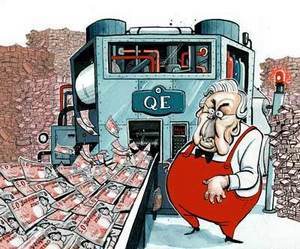A week devoted to Mervyn King and his eight-year reign at the Bank of
England sounds like pretty turgid stuff. But, already, the series that has started in the Times (£)
this morning — building up to an interview with the man himself — is anything but. Here, for instance, is a snippet from one of its articles, by David Wighton, on how Mr King reacted to
the crumbling of Northern Rock:
This story is unsurprising: Alistair Darling, in his memoirs, attacked King for advocating a more hands-off approach to the Rock. But it does highlight one of the major inconsistencies of the current arrangement along Threadneedle Street.‘As the plight of Northern Rock and other banks worsened, Sir John Gieve and Paul Tucker were urging Sir Mervyn to act, but he would not budge. “He mocked them as ‘crisis junkies’ and more or less accused them of enjoying it,” one former official says. Sir Mervyn took a different approach. “He locked himself in his room for several days and wrote a great essay entitled Turmoil in Financial Markets: What Can Central Banks Do?” On September 12 members of the Court [i.e. the Bank’s board] met to be told Sir Mervyn wanted them to read the essay, which he was sending to the Treasury Select Committee. Several directors expressed concern about the letter, which emphasised the risks of moral hazard and concluded that the turmoil had “disturbed the unusual serenity of recent years, but, managed properly, it should not threaten our long-run economic stability”. The next day Britain was on the brink of its first run on a bank since 1866. The members of the Court were phoned by the Bank. They were told to go to the McDonald’s by Liverpool Street Station and await instructions.’
When the Bank was made independent, it was meant to be made blander in the process — its purpose reduced to little more than meeting an inflation target set by Gordon Brown. The appointment of King as Governer then reinforced this idea. He was a quiet, bookish man for a quiet, bookish task. But, of course, all this changed with the financial crisis. King has been put in a far more prominent, more urgent position than he ever would have expected. As his subsequent comments have demonstrated, he can no longer be just a writer of essays, but almost unavoidably a political actor — someone whose public views, on everything from quantitative easing to public spending, carry great import for the nation, and all that.
This is something that George Osborne should consider as he decides upon King’s successor, particularly as the Bank is gaining more responsibilities for regulating the financial sector. The role is bland no more. As with normal politicians, it needs to be scrutised more closely.






Comments